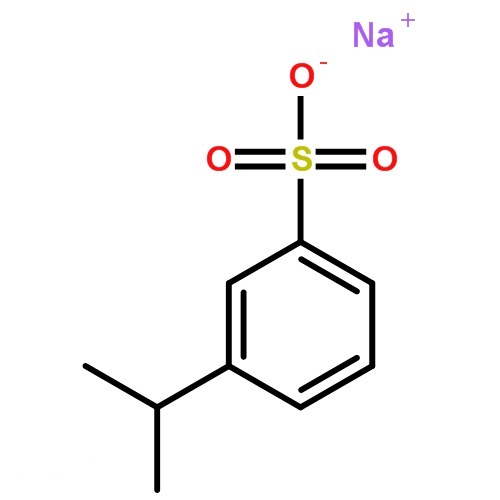
Products
Ethylene sulfate ; CAS No. : 1072-53-3

Synonyms:1,3,2-Dioxathiolane 2,2-dioxide;1072-53-3;Ethylenesulfate;Ethylene sulfate;1,2-Ethylene sulfate;Ethylene glycol, cyclic sulfate;Glycol sulfate;1,3,2-DIOXATHIOLANE, 2,2-DIOXIDE;C2H4O4S;1,3,2-DIOXATHIOLANE-2,2-DIOXIDE;Sulfuric acid, cyclic ethylene ester;BRN 1237731;DTXSID3020598;[1,3,2]dioxathiolane 2,2-dioxide;3-01-00-02110 (Beilstein Handbook Reference);1,3,2-Dioxathiolane,2,2-dioxide;Ethyleneglycol, cyclic sulfate (8CI);ethosulfate;ethyl enesulfate;ethylene sulphate;SCHEMBL52208;DTXCID70598;Ethylene glycol cyclic sulfate;CHEMBL3186939;AMY21937;Tox21_200498;MFCD00221769;NSC526594;AKOS015855774;CS-W007741;LS-7386;NSC-526594;1,3,2lambda6-dioxathiolane-2,2-dione;NCGC00248660-01;NCGC00258052-01;1,3,2-Dioxathiolan-2,2-oxide (DTD);AS-20144;CAS-1072-53-3;1,3,2-Dioxathiolane 2,2-dioxide, 98%;1,3,2??-DIOXATHIOLANE-2,2-DIONE;D2830;FT-0655036;EN300-365581;J-001744;J-521351;Q63088203
Chemical Property of Ethylene Sulfate
● Appearance/Colour:yellowish crystal
● Vapor Pressure:0.0965mmHg at 25°C
● Melting Point:95-97 °C(lit.)
● Refractive Index:1.469
● Boiling Point:231.1 °C at 760 mmHg
● Flash Point:93.5 °C
● PSA:60.98000
● Density:1.604 g/cm3
● LogP:0.35880
● Storage Temp.:2-8°C
● Solubility.:Chloroform, Methanol
● XLogP3:-0.5
● Hydrogen Bond Donor Count:0
● Hydrogen Bond Acceptor Count:4
● Rotatable Bond Count:0
● Exact Mass:123.98302978
● Heavy Atom Count:7
● Complexity:128
Safty Information
● Pictogram(s):
● Hazard Codes:
● Statements:22
Useful
Canonical SMILES:C1COS(=O)(=O)O1
Uses:1,3,2-Dioxathiolane 2,2-Dioxide is an alkylating agent with carcinogenic activty. 1,3,2-Dioxathiolane 2,2-dioxide may be employed in the preparation of imidazolidinium salts.
Detailed Introduction
Ethylene sulfate, also known as ethylene ester sulfonic acid, is an organic compound with the chemical formula C2H4SO4. It is a clear, colorless to pale yellow liquid that is highly reactive and can be potentially hazardous.
Ethylene sulfate is primarily used in the synthesis of specialty chemicals, particularly for the production of surfactants and detergents. It is commonly employed as a reactant in sulfation processes, where it reacts with alcohols, amines, or other organic compounds to form sulfate esters. These sulfate esters are widely used as surfactants in various industries, including personal care, household cleaning products, and industrial applications.
In the personal care industry, ethylene sulfate-derived surfactants are utilized in shampoos, body washes, and soaps due to their excellent foaming, emulsifying, and cleansing properties. They help to remove dirt, oil, and other impurities from the skin and hair, providing a pleasant sensory experience. Additionally, these surfactants contribute to the stability and texture of cosmetic formulations.
Ethylene sulfate derivatives are also utilized in the production of textile chemicals, lubricants, emulsifiers, and wetting agents. The synthesized sulfate esters are valuable in these applications due to their ability to lower surface tension, enhance wetting properties, and improve solubility of various substances.
It is important to note that ethylene sulfate can be irritant to the skin, eyes, and respiratory system. Therefore, proper safety precautions should be taken while handling and using this compound. Additionally, due to its reactivity and potential environmental impact, appropriate measures should be in place for the safe storage, handling, and disposal of ethylene sulfate.
In conclusion, ethylene sulfate is a significant chemical compound used in the production of surfactants and detergents for various industrial applications. Its sulfation reactivity enables the synthesis of sulfate esters that exhibit excellent surface-active properties, making them valuable components in many consumer and industrial products.
Application
Ethylene sulfate, which is also known as ethylene bisulfate or ethylene monosulfate, does have some limited industrial applications. Some of its uses include:
Textile industry: Ethylene sulfate can be used in the production of various fabric finishes, including those that improve dye uptake and color fastness.
Electroplating: It can be used as a component in some types of electrolyte solutions for electroplating processes.
Chemical synthesis: Ethylene sulfate can be utilized as a starting material for the synthesis of certain organic compounds.
It is important to note that ethylene sulfate is a toxic and reactive compound. Strict safety measures must be followed when handling, storing, and disposing of this substance. It is recommended to consult with a qualified chemist or chemical safety professional for specific information and guidance on its safe usage.





![4-propyl-[1,3,2]dioxathiolane-2,2-dioxide ; CAS No. : 165108-64-5](https://cdn.globalso.com/pengnuochemical/4-propyl-132dioxathiolane-22-dioxide-165108-64-5.png)

